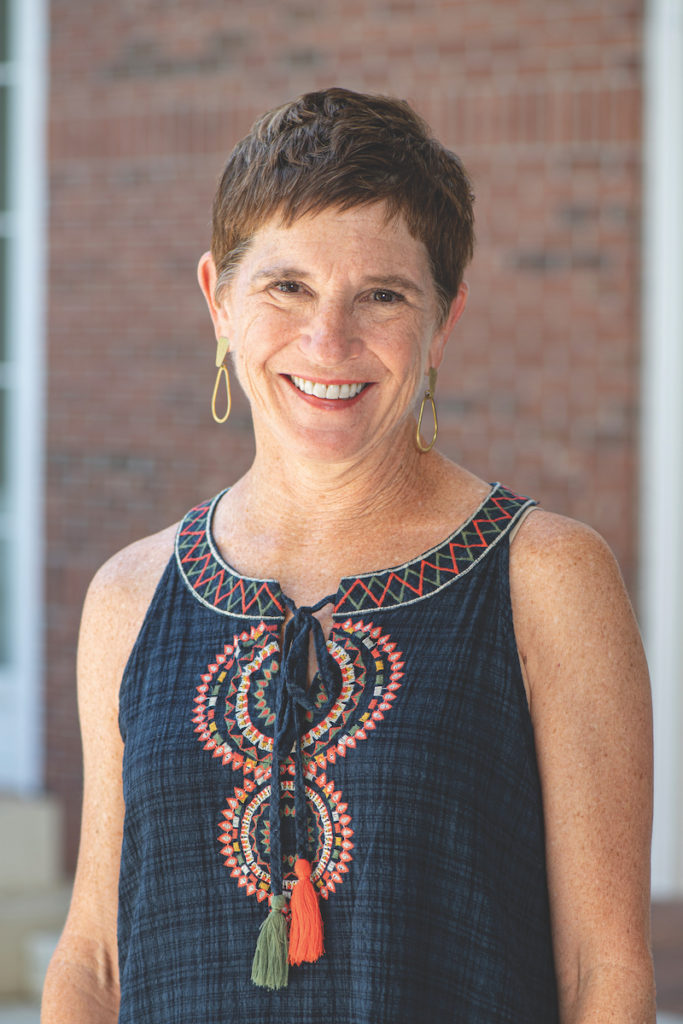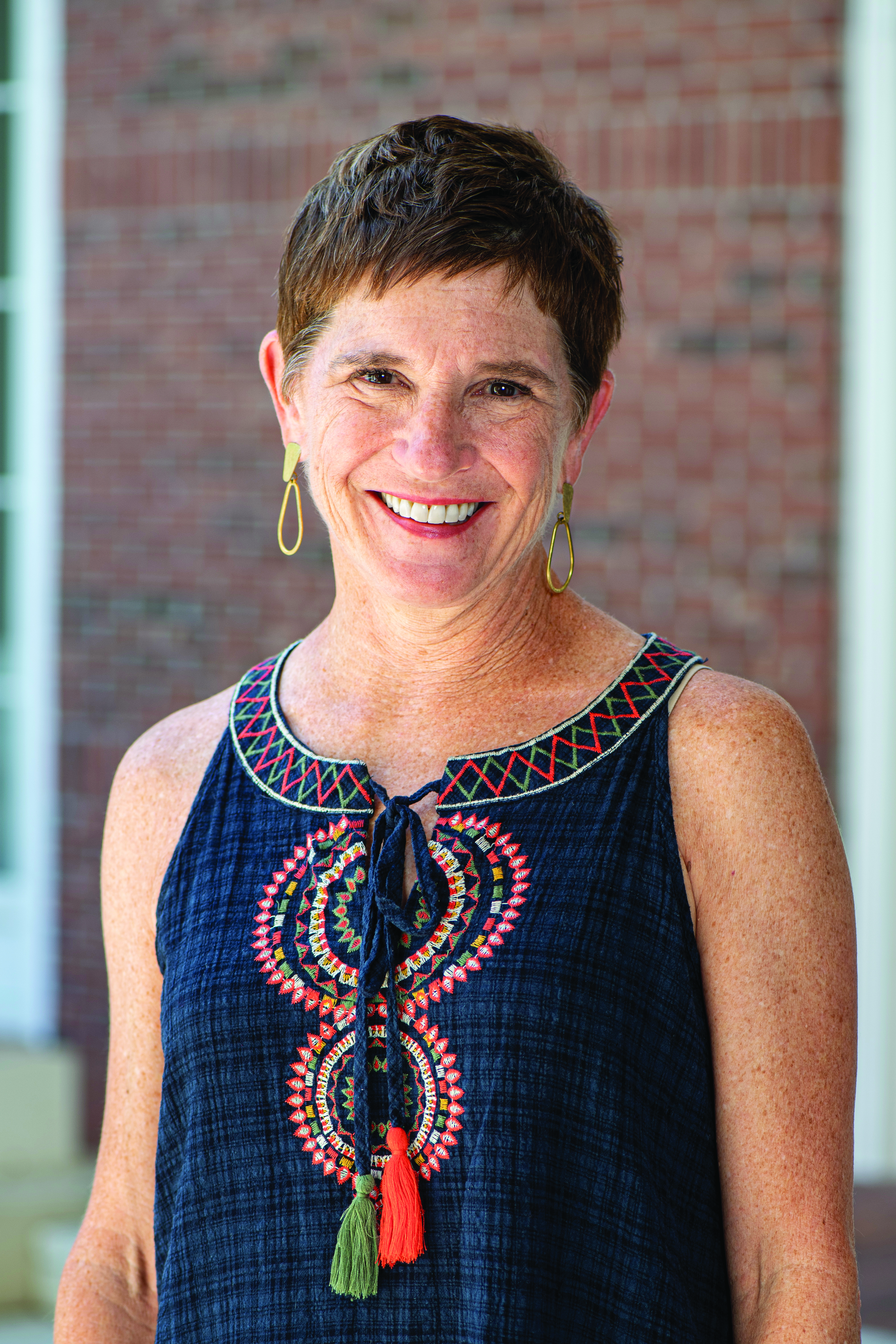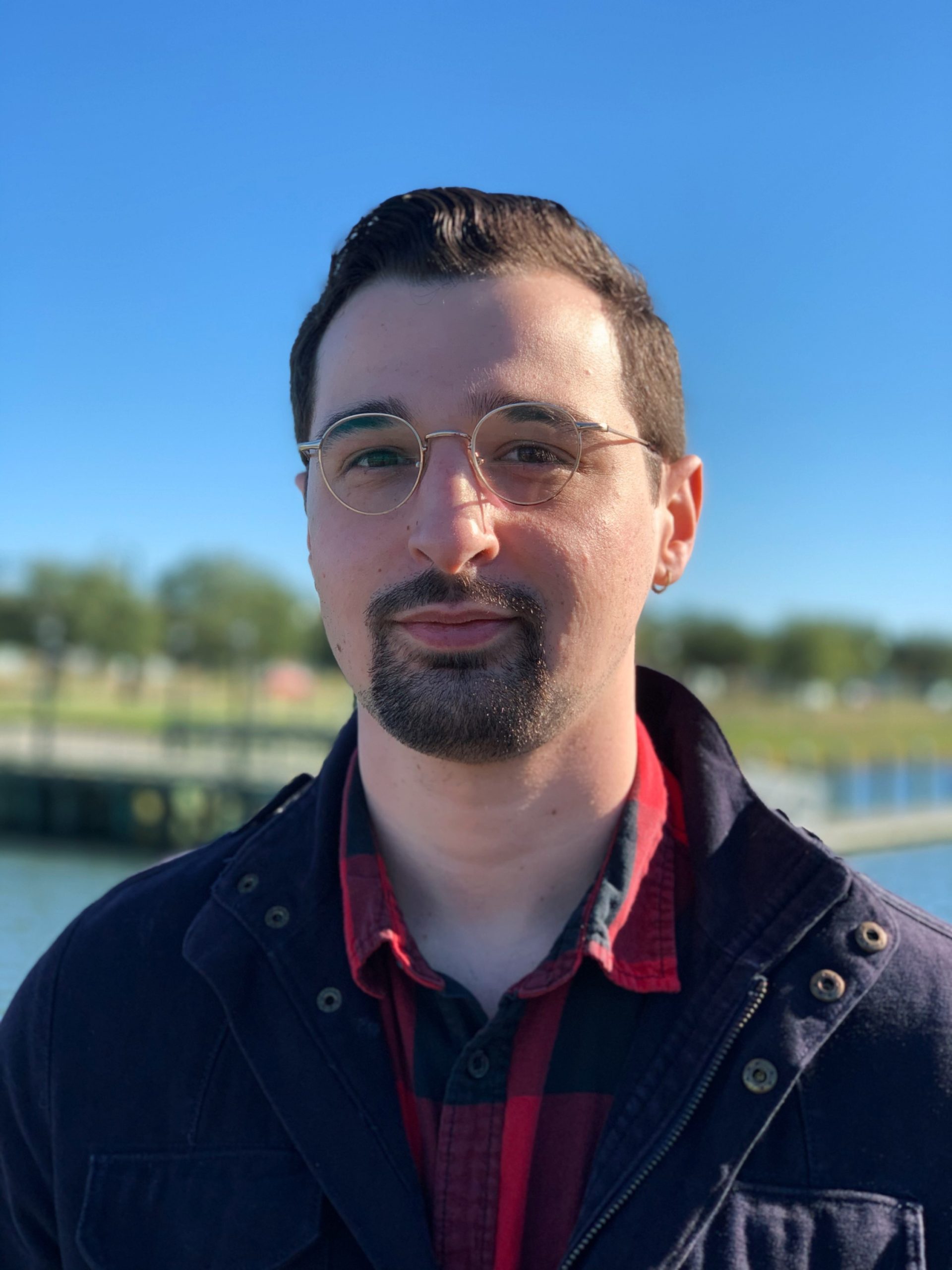
- What is your area of specialty?
Professional and business writing. In addition to teaching as a senior lecturer, I work as publications editor for the Edwards College, so I do a lot of writing and also have the chance to work closely with students through writing internships.
- What is the title of your master’s thesis or dissertation?
My master’s thesis is titled “Heteroglossia According to Garp: The Polyphany of Voices in the Recent Works of John Irving.” The work explored four of Irving’s most recent (at the time! ) novels — Hotel New Hampshire, The World According to Garp, The Cider House Rules, and A Prayer for Owen Meany — through the lens of Mikhail Bakhtin’s narrative theory of heteroglossia. My thesis traces and analyzes Irving’s use of a variety of linguistic forms within his works and how he layers voices and dialects upon one another to achieve specific goals .
- What is your most recent publication?
I write feature stories for Tapestry, the alumni magazine of the Edwards College, and I’m a contributor at Grand Strand Magazine. Most of my publishing work is in magazines; you can see several of my pieces in the latest version of Tapestry, or you can read “Transformative Growth” in the Feb/March 2023 issue of Grand Strand.
- What is your favorite assignment to assign?
I always like the group projects in business communication; the assignment requires students to work together to research a particular company as a potential employer. The students always come up with companies that are unfamiliar to me, and I see a different side of those students when they’re the ones up there teaching the class.
- What was the last book you read?
I’m currently enrolled in a low-residency MFA program in creative writing at Bennington Writing Seminars. I’m working on a book-length memoir, so I’ve been reading many, many memoirs and works of nonfiction. The most recent was The Story of my Father by Sue Miller. Another recent favorite was How We Fight for Our Lives by Saeed Jones.
- What are your favorite events on campus?
I always love the Words to Say It writers’ series, and I also enjoy CCU theatre productions. I saw The Curious Incident of the Dog in the Nighttime a few weeks ago, and it was great.
- What is your favorite place to eat on campus?
I usually eat at my desk, but sometimes I wander up to the faculty lounge in the Edwards building and have a chance to chat with colleagues. It’s always lovely.
- What do you enjoy most about CCU?
The opportunity to work with so many colleagues from different departments around the college. I really enjoy experiencing, and writing about, how each discipline approaches and encourages a life in the humanities in the same, and in different, ways.

